Sanders wins 2016 Simulated Convention nomination in landslide vote
David Shelly, campaign manager for Bernie Sanders, exits the podium after delivering his candidate’s acceptance speech
TOWAMENCIN- As Republican and Democratic presidential candidates travel around the United States in preparation for the upcoming primary election season, a different kind of political exercise has been taking place in the North Penn High School auditorium for the past two days: the Social Studies department’s eleventh Simulated Convention. While the first day of the Convention was focused on the platform stances of the event’s imaginary Millennial Party, today’s events focused on nominating a presidential and vice presidential candidate.
The day’s events started with a speech from guest speaker and 1997 North Penn graduate Chris Manero. Manero, who teaches high school Social Studies at Plymouth Whitemarsh High School and who was sworn in to his position on the Plymouth Whitemarsh council last Monday, used voter turnout statistics to stress the importance of students active participation in politics.
A former delegate from the 1996 Convention, Manero appreciated the opportunity to return to NPHS.
“It’s cool to be back, especially to be a part of something that I remember doing when I was here,” said Manero, noting that the event was special for students because “instead of listening to political figures and news personalities talk about the election, they get to listen to each other.”
Also returning to the NPHS auditorium was former Social Studies teacher and SGA adviser Mr. James Finnemeyer, who started the Simulated Convention back in 1976.
“What we tried to do back in 1976… we’re sitting here in 2016 and it’s still happening,” said Finnemeyer, who mentioned that he was watching live coverage of the Convention on North Penn Television yesterday and this morning before he came to witness this year’s event in person.
We get so caught up in the required curriculum, to be able to take a break and say ‘we’re going to take time and we’re going to listen to each other…’ I wish every high school in this country was able to do that.
— Mr. James Finnemeyer, organizer of first NPHS Simulated Convention in 1976
“For a high school to say, ‘hey, we’re taking a thousand students out of classes, we’re not having a regular two days of school…’ we’re having a process. The opportunity for kids to be up at the microphones, to be in the caucus rooms yesterday, and to discuss and debate issues, we’d like to have that happen all the time in classes, but that doesn’t happen,” said Finnemeyer. “We get so caught up in the required curriculum, to be able to take a break and say ‘we’re going to take time and we’re going to listen to each other…’ I wish every high school in this country was able to do that. I’m hoping, as I did in 1976, that this will stimulate in students here the desire to turn the television on, to watch the real Republican and Democratic conventions, and they will find that the people at the conventions are probably less attentive than they have been at this thing.”
That attentiveness was on full display by midmorning, when the campaign managers took turns giving nominating speeches at the podium before states broke for their individual caucuses. Many campaign managers received either cheers or boos from the crowd as they spoke, with Donald Trump manager Etienne Ayoub’s reciting of “Humpty Trumpty built a great wall, Humpty Trumpty deported them all” drawing loud laughter and applause from delegates.
When the time came for states to go up to the microphones and state their nominations for president, it quickly became apparent that Bernie Sanders had the support of an overwhelming majority of the crowd. Sanders’ winning margin was 587 votes to Donald Trump’s 73 votes, with three candidates (Jeb Bush, Carly Fiorina, and James Gilmore) receiving less than five votes each. Finishing close to Trump were Marco Rubio with a final tally of 68 votes and Ben Carson with 58 votes.
“It feels great to win and it feels great to know that the Millenial Party backs Bernie Sanders and his vision for America,” said David Shelly, campaign manager for Sanders. “I think the reason why he won is that he is running on a platform of actual change, of making the government more accountable to the people, and of doing what people actually want him to do.”
That sentiment was echoed throughout the day, with the more liberal younger crowd feeling underwhelmed with their other options in the Democratic Party.
A lot of what Bernie talks about is things that are important to younger Americans, even though he’s 74 years old.
— Mr. Brian Haley
“[Hillary Clinton’s] demographic of voting is more towards older people,” said senior Niketa Kulkarni, campaign manager for Clinton. “Her stances on issues are just not fitting what the younger generation wants.”
“Bernie’s message resonates with people who feel the government could do more for people than it does,” agreed Social Studies teacher and convention organizer Mr. Brian Haley. “A lot of what Bernie talks about is things that are important to younger Americans, even though he’s 74 years old.”
Following the landslide election of Sanders, Haley called for a verbal vote for a Republican candidate, which was won by Kentucky Senator Rand Paul.
Before the Convention broke for lunch, the final guest speaker of the convention, PA Representative Todd Stephens, took to the podium to explain the importance of local politics on student’s lives.
“At the local level, people have no idea what we do,” admitted Stephens. “But if you contact your local representative, they have to answer directly to you.”
The final order for the Convention was the election of a running mate for presidential pick Bernie Sanders. With the field full of celebrities and North Penn Social Studies teachers, the final vote turned out to be a narrow victory by government teacher Mr. Steven Henry over Snapchat celebrity DJ Khaled.
Despite the vice presidential antics at the end of the Convention, those participated in the event were grateful for the opportunity to look at politics in a different way.
“I’ve really enjoyed learning more about [politics] and having mature conversations about it,” said senior Rachel Darde, whose class was representing Indiana.
Permanent Convention chair Katie Solomon echoed that sentiment, saying that she enjoyed hearing her classmate’s stances on issues.
“Kids I’ve never seen since elementary and middle school, and kids I’ve never seen before, [seeing them] say their feelings, what their opinions are… you get some insight on some people you’ve never met,” said Solomon. “None of these kids, including the kids who are planning it, have ever done this before. I had no idea what to expect, so it’s really cool to see how this turned out.”
Event organizer Brian Haley walked away from his fifth Simulated Convention content with the passion shown by delegates at the microphone and hoped that students would continue to think about politics beyond the event.
“That’s the only reason why we do this, to get people thinking and acting on issues and politics,” said Haley. “I’m certainly not going to reach a thousand kids. But if I can reach as many kids as I can with the energy and the spirit and the interest in politics, then I consider [the Convention] a success.”


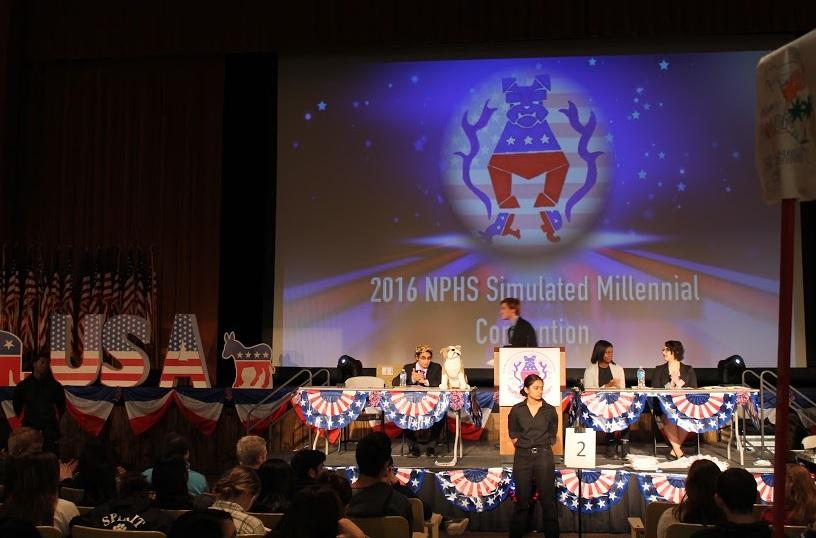
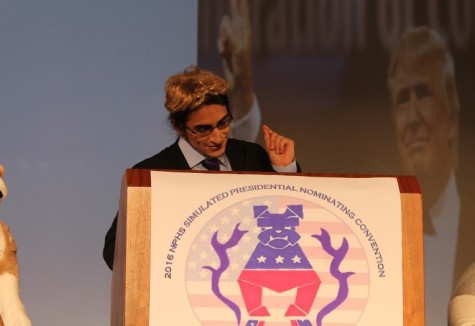
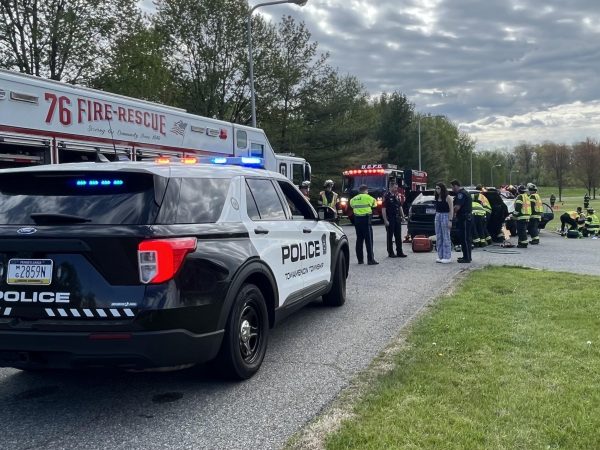
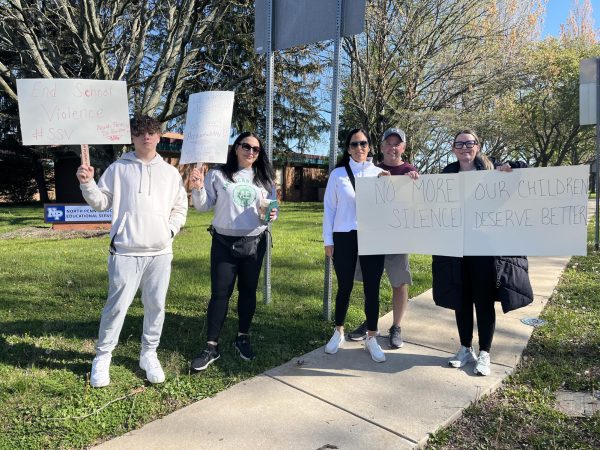
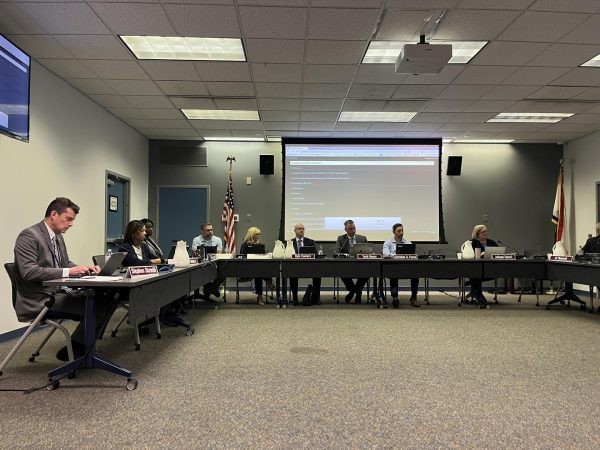
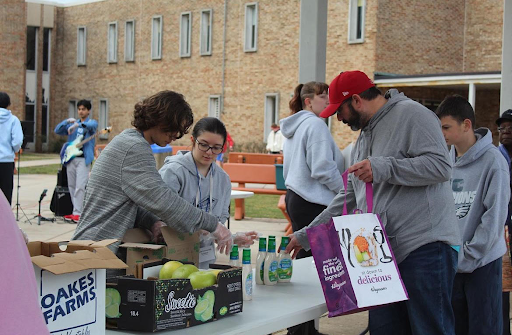

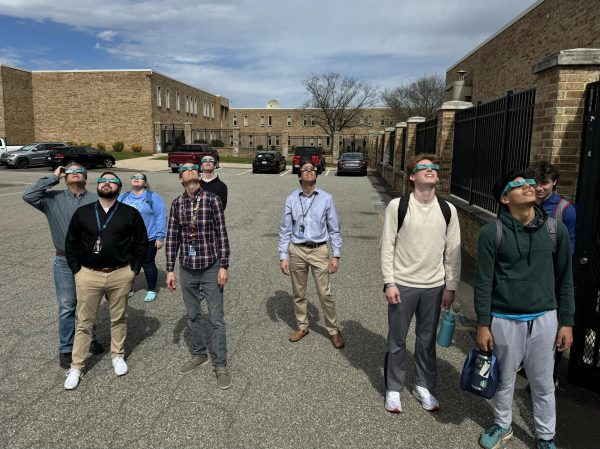

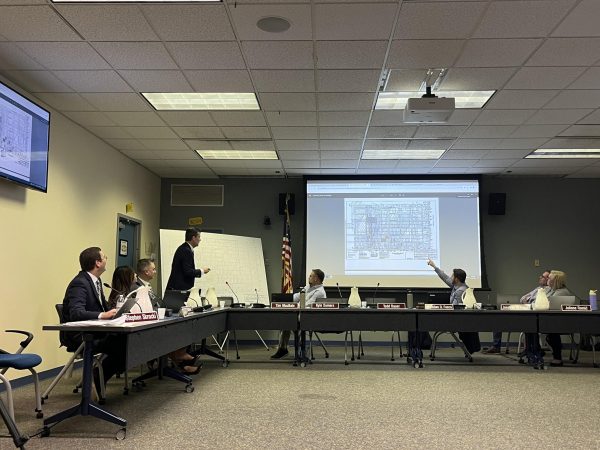
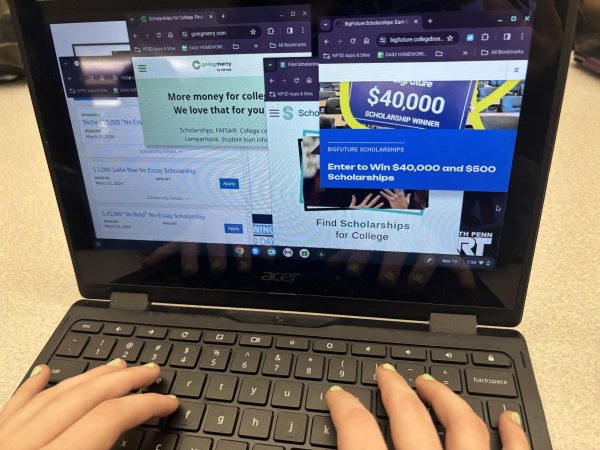
Ben Garrison • Jan 7, 2016 at 11:12 am
Vote Rand “The Man” Paul for 2016
Bernie Sanders is a communist